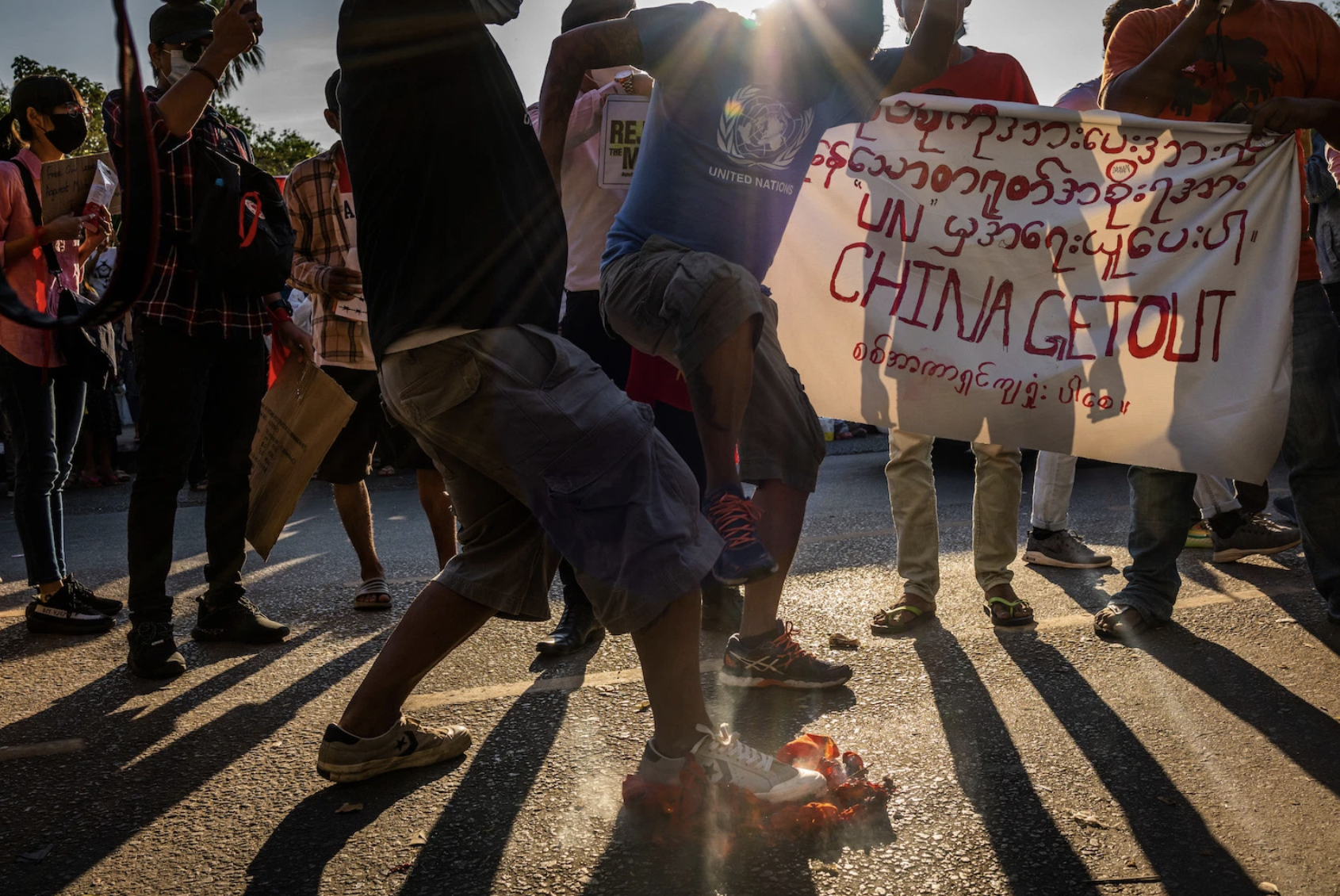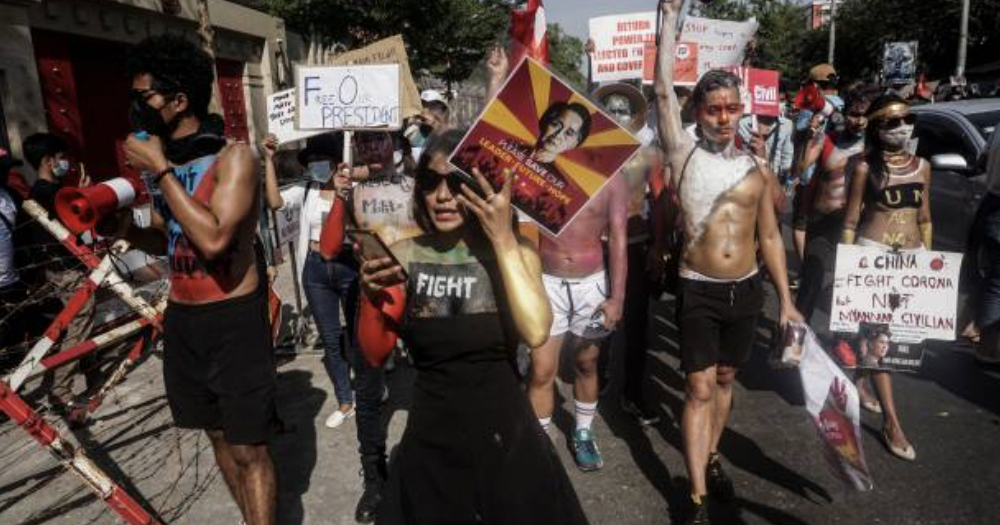Follow us on Telegram for the latest updates: https://t.me/mothershipsg
Amid growing accusations from Myanmar protesters towards Beijing for allegedly backing the coup, Chinese Ambassador to Myanmar Chen Hai said the country's situation is "absolutely not what China wants to see".
Closest response to criticising the coup
In an interview with several media outlets that was published on the website of the Chinese embassy in Myanmar on Tuesday, Feb. 16, Chen said China had noticed Myanmar's "domestic dispute regarding the election" for some time.
"But we were not informed in advance of the political change," he said, adding that China has friendly relations with both Suu Kyi's party, the National League for Democracy, and the military.
The interview was the closest China has come to criticising the political unrest that has broken out in its neighbouring country.
China had previously referred to the coup as a "major cabinet reshuffle".
Chen also reiterated that China stands by the joint statement that the United Nations (UN) Security Council released on Feb. 4, which called for the release of those detained, including political leader Aung San Suu Kyi.
The statement, however, had not mentioned the coup, and stopped short of condemning it, Bloomberg reported.
Previously, before the joint statement was released, it was also reported by France24 that China and Russia had blocked an earlier statement that condemned the military.
Protesters growing increasingly anti-China
Protesters have accused Beijing of helping the military generals who conducted the coup that ousted the civilian government led by Suu Kyi.
Voicing their anger, they gathered outside the Chinese embassy in Yangon in the past week, holding signs that call for support to Myanmar, as well as placards that depict general Min Aung Hlaing as the puppet of Chinese President Xi Jinping.
 Protesters defacing the Chinese national flag. (Image via Getty Images)
Protesters defacing the Chinese national flag. (Image via Getty Images)
Financial Times (FT) reported that activists have called for a boycott of Chinese goods as well.
Yun Sun, an expert on Myanmar-China relations at the Washington DC-based Stimson Center, told FT that protesters are convinced that China is involved in the coup, and has abandoned Suu Kyi, who is widely seen as the mother of the nation by many Myanmar citizens.
It has also been rumoured among protesters that the military had engaged the help of the Chinese to set up a Great Firewall in Myanmar like the one in China to curtail free access to information.
Protesters point to five cargo flights that arrived at Yangon from China's Kunming city a little over a week after the coup. They claimed that the military had engaged Chinese software engineers and technicians to build the alleged cyber firewall.
Chen had dismissed such claims as "total nonsense and laughable".
Military's relationship with China not as cosy as people think
Analysts have opined that China's relationship with Myanmar's military is complicated at best.
Part of the reason why the military had agreed to embark on tentative democratic reforms in 2011 under the elected civilian government -- after five decades of military rule -- was to reduce its dependence on China by opening the country up to the rest of the world.
Military sought to reduce reliance on China
The military also reportedly had long-held suspicions towards Beijing for the latter's history of support for communist insurgencies and ethnic armed groups in Myanmar.
According to Nikkei Asia, the military had increased its imports of military assets from Russia in an attempt to offset its reliance on China.
The military does not want Myanmar to be "a client state of China," Murray Hiebert, a senior associate at the Center for Strategic and International Studies told The Washington Post.
Under the previous military government led by former President Thein Sein, plans for the highly unpopular Myitsone Dam were scrapped as well, to China's chagrin.
Aung San Suu Kyi turned to China
In contrast, the civilian government had been relatively more responsive to infrastructure investments from China.
During Xi's visit to Myanmar in 2020, Suu Kyi inked a number of Belt and Road Initiative infrastructure deals. Suu Kyi had also turned to China for support under increasing condemnation from Western nations over her defence of the Myanmar military's treatment of the Rohingya minorities.
Enze Han, an associate professor at the University of Hong Kong told FT that under Suu Kyi, relations between the two countries had been stable, and that is why he does not see why China would want the military to come back.
But given its inability to influence the political developments in Myanmar, Beijing's hands are likely tied, and have little choice other than to cooperate with the government in power, especially since it is unlikely to do anything that might further destabilise the country that it borders.
Top image by SAI AUNG MAIN/AFP via Getty Images
If you like what you read, follow us on Facebook, Instagram, Twitter and Telegram to get the latest updates.
